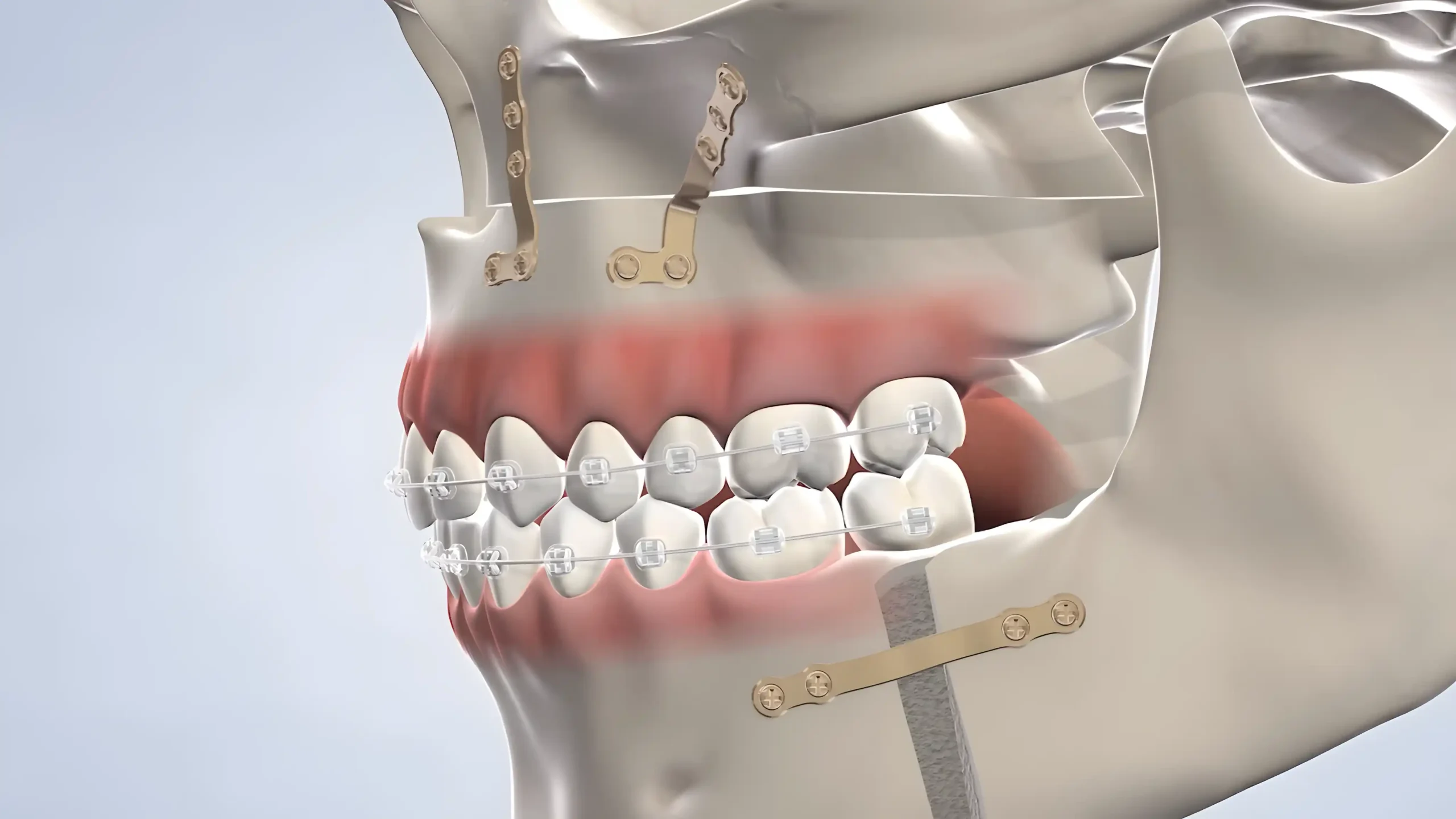May 2016
Issues with bone structure, TMJ disorders, orthodontic issues, and other conditions can all relate to the alignment of your jaw. When non-surgical treatments fail to correct bite problems, jaw surgery can truly change a patient’s life by improving their ability to eat, speak, and breathe comfortably.
Oral and maxillofacial surgeons like Dr. William Graves and Dr. Paul Wilkinson have all undergone years of training to understand facial structures and how to repair them. Our surgical team has years of experience performing oral and facial surgeries of all kinds, and reconstructive jaw surgery is one of our many specialties.
Do I Need Jaw Surgery?
Having one or more of the following symptoms or conditions may indicate the need for jaw surgery:
- Difficulty chewing or swallowing food
- Breathing problems or sleep apnea
- Excessive wear on the teeth
- A severe receding or protruding chin
- Difficulty closing your mouth or teeth fully
- Chronic jaw pain or TMJ (jaw joint) pain
- Difficulty opening your mouth all the way
Sometimes nonsurgical treatments—like the use of a night guard or braces—can correct bite problems, but in other cases, surgery may be the best option.
Benefits of Corrective Jaw Surgery
- Improved jaw function
- Reduce or alleviate facial pain
- Improved facial harmony
- Easier breathing
- Health benefits from easier breathing, chewing, and swallowing
- Improve speech impairments
Orthognathic Surgery Procedure
The entire treatment process usually spans several months and involves braces, surgery, and a recovery period. While this may seem long, patients suffering from jaw problems find that the benefits after they have recovered are well worth the wait. When you visit us for a consultation, we will take 3D CBCT scans of your facial structures, which provide detailed information about your condition. We will provide detailed instructions to guide you through every step of your journey with us.
The exact procedure you undergo will depend on your specific situation—some patients may need to have their lower jaw repositioned, whereas others need alterations to their upper jaw and teeth. In either case, your oral surgeon will work with you and your orthodontist to produce optimal results.
Your orthodontist will prepare your teeth for their new alignment with braces. This can take several months before you are ready for your surgical procedure. At your surgical appointment, you will receive general anesthesia, which will allow you to be unconscious throughout the procedure. After administering the anesthetic, your surgeon will separate the portion of the jaw that needs repositioning, then reattach it using tiny screws, wires, or plates. Oral surgeons at Amarillo Oral & Maxillofacial Surgery use techniques that minimize scarring and produce optimal cosmetic results. Once your procedure is over, you will rest until the anesthesia wears off. Steps to follow during recovery will be outlined in your post-operative instructions.
If you have additional issues regarding superior oral and cosmetic surgery care in Amarillo, Texas, contact us by giving us a call at (806) 353-1055 or send an email to us at [email protected]. Schedule an appointment with Amarillo Oral & Maxillofacial Surgery today by filling out an easy online registration form and getting started with us.
Hear From Jaw Surgery Patients
These patients can tell you about the firsthand experience undergoing jaw surgery at our office.





